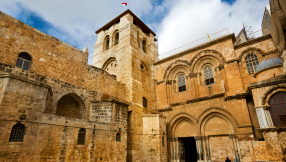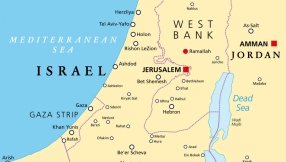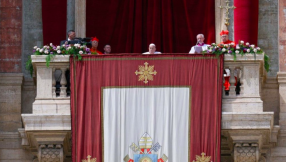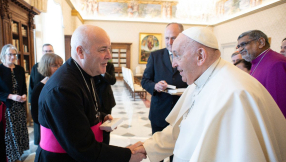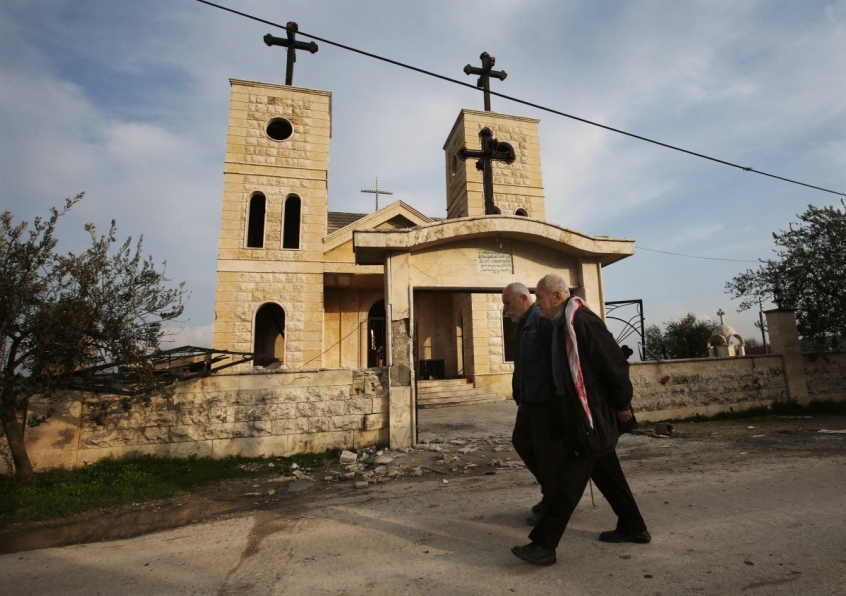
Christians are being targeted by militants in war-torn Syria, say church leaders in the country.
Syrian church leaders raised the warning during a visit to Washington DC last week sponsored by Barnabas Fund and the Westminster Institute in the US.
During their visit, they took part in a panel discussion at the Heritage Foundation under the harrowing title of "Marked for Destruction: The Plight of Syria's Christians".
The panel shared that more than 1,200 Christians were martyred in Syria in 2013 alone and that over 600,000 have fled the country. Many still remain in Syria where they are at risk of abduction and acts of violence, and struggling with the same hardships as the rest of the population.
Barnabas Fund estimates that between 30 and 40 per cent of churches in Syria have been seriously damaged or completely destroyed as a result of the fighting.
Riad Jarjour, a Presbyterian pastor from Homs and former president of the Middle East Council of Churches, said: "If this continues the way it is, there will come a time when there will be no more Christians in Syria."
As an example of the horrific violence that Christians are at risk of, Bishop Armash Nalbandian, primate of the Armenian Church of Damascus, told of two Armenian Christians from Aleppo who were taken from a bus by opposition fighters. When the fighters returned to the bus later with a box, they said it contained cakes but inside were heads of the two Christians.
Syrian church leaders asked US policymakers and officials to recognise a new "axis of evil" across Saudi Arabia, Qatar and Turkey, which they claim are arming the Islamic militants who are kidnapping, raping and killing Christians.
They also specifically urged the US to put pressure on its allies to stop supporting and sending terrorist fighters to Syria.
In his report on the church leaders' visit, Dr Sookhdeo said they had been received "sympathetically" but given no assurance of support from US officials.
He likened the role of the churches in Syria today to those that worked for peace through the Troubles in Northern Ireland.
"We must believe today that the courage of my colleagues from Syria will one day bear fruit and that through their efforts, peace will come to Syria and ultimately Lebanon and the region," said Dr Sookhdeo.
"This would be a glorious day, not just for the beleaguered Christian communities, but also for the many good, decent Muslims in the region who yearn for peace and an end to religious extremism.
"When politicians and statesmen fail, it falls to the Church to stand in the gap."










